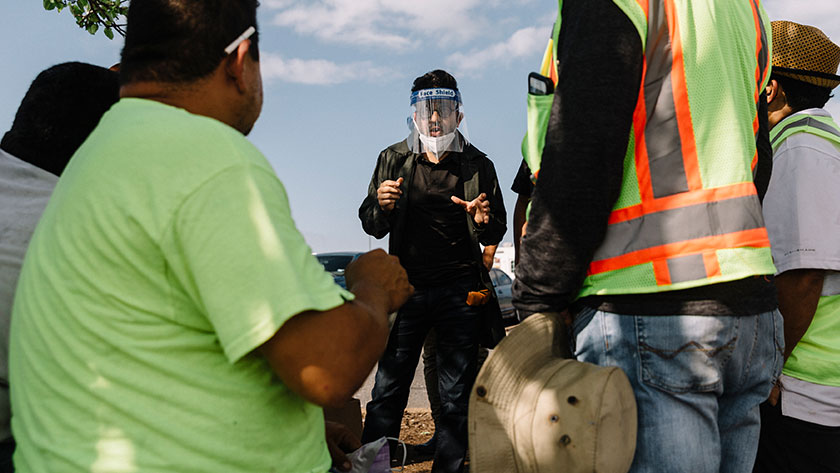On June 21st, we sat in the Great Hall of the U.S. Department of Labor in Washington D.C., witnessing history. Leaders from across the federal government joined key representatives from state and local government, philanthropy, labor, workforce development, and business to share their common vision to advance a good jobs economy.
In a 2020 Gallup poll, workers defined good jobs as those that offer stable and predictable pay, job security, and having a sense of dignity and purpose in work, among other characteristics. Yet only 44 percent of these workers reported having a “good job.” In her opening remarks at the Good Jobs Summit, Deputy Secretary of Labor Julie Su named job quality as a critical strategy for the many companies seeking to attract and retain talent amidst today’s hiring crunch, “Workers want to work but are opting for jobs that give them a voice at work, health and safety protections, stability, and benefits. So one way to attract more workers is to improve… job quality.” Throughout the day, speakers at the Good Jobs Summit called on public and private sector leaders to address the shortage of quality job opportunities and take action to make every job a good job.
The U.S. Department of Labor and the Families and Workers Fund–in partnership with the Skoll Foundation, Ford Foundation, Irvine Foundation, and Quality Jobs Fund–co-hosted the Good Jobs Summit to seize this historic window of opportunity to rebuild a more equitable economy. As the largest-ever federal government conference specifically on job quality, it drew nearly 4,000 in-person and online participants and brought together leaders from business, government, and the nonprofit sector to envision and plan a path forward to advance good jobs in the United States. The Summit provided a platform for unprecedented commitments from federal and local leaders and unleashed a wave of momentum to carry forward the critical work of creating and supporting jobs that sustain and uplift working people and their families.

“This administration is unified around the concept of a good job,” Labor Secretary Marty Walsh said, announcing a whole-of-government approach to advancing good jobs across federal agencies. “I have seen it in my own life and throughout my career: good jobs change lives and lift up whole families. We have the opportunity right now to lift up more people than ever before. [The Good Jobs Summit] represents the partnerships we need to rebuild our nation’s infrastructure and address the generational challenges we face from climate change to global competition, to public health, to racial justice and gender equity.”
We know that moments like this don’t happen often. The Good Jobs Summit showed that we’ve reached an inflection point, and that philanthropy can play a vital role in bringing together stakeholders across sectors to ensure that this moment becomes a movement. We have a once-in-a-generation opening to rebuild an equitable, good jobs economy, and we are humbled by the diversity of philanthropic partners coming to the table. If you’re not already committed to the good jobs north star, we welcome you to join us.
banner image: A resilience worker rebuilding after a climate disaster. Immigrants disproportionately hold these jobs. (Resilience Force)